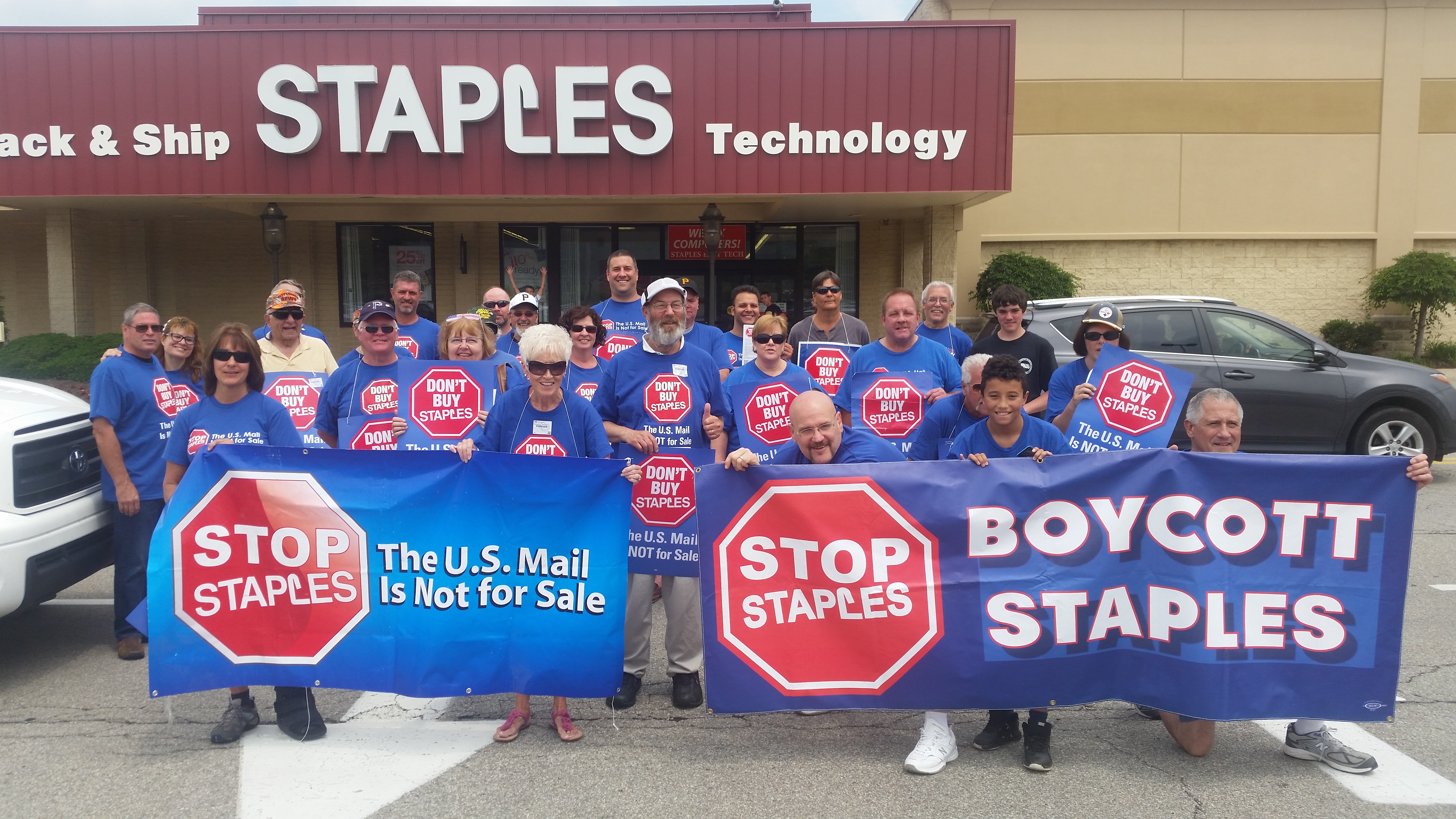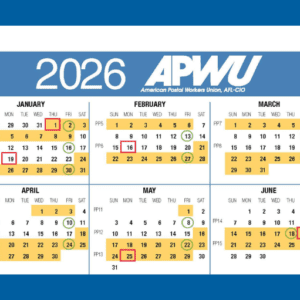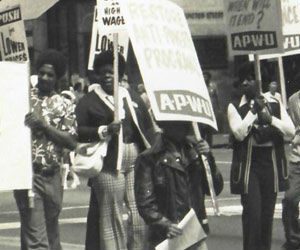September 1, 2015
NLRB Strikes Major Blow to USPS-Staples Deal
Proposed Remedy Would Restore Work to APWU Bargaining Unit
in Framingham, MA, on June 4.
(This article first appeared in the September/October 2015 issue of The American Postal Worker magazine)
In a major blow to the Postal Service’s deal with Staples, Region 5 of the National Labor Relations Board (NLRB) issued a complaint on June 26 charging that the USPS illegally subcontracted work to the office-supply chain and ordering the agency to return the work that existed on July 31, 2014, to the APWU bargaining unit. As this issue went to press, an Aug. 17 hearing was scheduled before an NLRB Administrative Law Judge.
If the NLRB sustains the allegations in the complaint, it could effectively end Staples’ foray into the mail business.
“In the meantime, the boycott of Staples and its online subsidiary, Quill.com, is still on,” APWU President Mark Dimondstein declared. “Let’s turn up the heat!”
The Postal Service violated the law when management entered into the deal with Staples without first bargaining with the union, the complaint alleges. The Postal Service also engaged in “bad faith bargaining” by refusing to provide the APWU with information, and violated the subcontracting provisions of Article 32 of the Collective Bargaining Agreement, the complaint says.
“This ruling represents an important step forward in the battle against the privatization of our nation’s public Postal Service,” Dimondstein said.
“But it is not simply the result of strong legal arguments,” he said. “Every APWU member and supporter who passed out flyers outside Staples stores can claim a piece of this accomplishment,” he said. “Every person who organized their friends and neighbors to boycott Staples and warned them about the dangers of allowing a private company to take over the mail helped us get to this point.”
Professor Gives Staples Campaign an A+

at the National Education Association conference
in Lake Buena Vista, FL, in June.
The Stop Staples campaign deserves straight As, according to one California professor.
During a July protest outside a store in Cupertino, CA, APWU retiree Ernest Johnson spoke with a professor who had been given a Staples gift card by his students.
The campaign must have had a huge impact on the educator, said Darla Gilgannon, a retired APWU clerk at the protest: The professor bought a few items to show his appreciation to his students and donated the remainder of the gift card to the protesters and told them to use “for the cause.” It all happened so fast that the protestors were unable to catch the benefactor’s name.
“He had $19 left [on the gift card] and said, ‘The students would appreciate that I got something, and gave the rest to Save the Postal Service!’” Gilgannon recalled. “His heart was really in the right place. He gets to go back and share the fact that his students got to help out and save our post office.”
Most importantly, the professor said that he would never shop at Staples again.
“The kind of stuff that happens out here is amazing,” said Gilgannon, who is secretary of the East Bay Local, and has been attending Staples protests almost daily, since January 2014.
Reminder: Don’t Buy Your School Supplies at Staples!
It’s that time of the year again: Time to purchase, pens, pencils, loose leaf paper and binders. But please remember to not shop for school supplies – or anything else – at Staples.
The Pennsylvania American Federation of Teachers (AFT) doesn’t need a reminder. They passed a resolution support the boycott of the office-supply store at its convention in Philadelphia in late June.
Protests are also regularly taking place across the country, including in Boston, New York City, San Francisco, Philadelphia, Atlanta and Pittsburgh.
Why We’re Boycotting

In the fall of 2013, the Postal Service and Staples implemented a pilot program that established knock-off post offices in 82 Staples stores. As expected, a modified version of the program is being expanded to Staples stores across the country.
The postal counters are staffed with low-wage Staples employees rather than highly-trained USPS employees.
Secret USPS documents revealed that the Staples deal was intended to reduce labor costs. The APWU objects to the deal because it privatizes the retail operations of the public Postal Service; transfers living-wage, union jobs to low-wage jobs, and compromises the safety and security of the mail.



